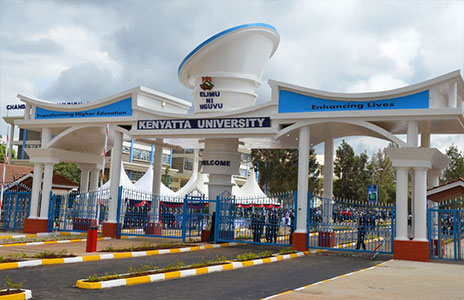
Agriculture is an exciting and fast-developing industry, harnessing new science and technology to increase productivity and efficiency on farms. Creative approaches, critical thinking, and innovation are needed to drive forward this longstanding yet resilient industry.
This Bachelor of Science in Agriculture programme is a rigorous and broad-based curriculum designed to produce graduates who through extension, teaching, research, or consultancy will provide technical services in agribusiness, agricultural policy formulation, animal production, crop and land management, and environmental protection.
The first two years of the BSc Agriculture programme will be spent on core courses which will ground the students in agriculture-related basic sciences and the fundamentals of the professional agricultural disciplines (i.e. agricultural economics, animal science, crop protection, crop science and soil science). In the third year of study, the students will opt and specialize in any of the following majors: Crop Science, Crop Protection, Land Resource Management, Animal Science and Agricultural Economics). The respective majors will appear on students? transcripts and degree certificates (e.g. B.Sc. Agriculture-Crop Science major).
Entry Requirements
- Holders of Kenya Certificate of Secondary Education (KCSE) with a mean grade of C+ or equivalent with passes at C plain or above in Biology or Biological Sciences and any one of the following subjects: Chemistry, Physics, Physical Sciences, Mathematics, Agriculture or Geography
- Holders of KCSE mean Grade of C- or equivalent plus a Certificate and Diploma in a relevant field from an institution recognized by the Senate.
- Holders of O-level Division II or equivalent with subjects indicated in 3.1.1 above; plus a Diploma in a relevant field from an institution recognized by the Senate
- Holders of A-level with two Principal Passes or equivalent in Biology and any one of the following subjects: Chemistry, Physics, Geography or Mathematics
- Holders of KCSE mean Grade of C plain or equivalent plus a Diploma in Biological Sciences or related sciences from an institution recognized by the University Senate
- Holders of a higher national Diploma in Biological Sciences or related sciences from an institution recognized by the University Senate.
- Holders of a Bachelor of Science degree in Biological Sciences or related sciences from an institution recognized by the University Senate
- Equivalent qualifications to the above from institutions recognized by the University Senate
Objectives of Bachelor of Science in Agriculture
In recent times, agricultural production systems have become increasingly more intensive and susceptible to adverse effects of climatic variability and changes in local, regional and global markets. In addition, the local, regional and global food situation is grim due to increased demand and the increasing use of staple food crops as alternative energy sources.
This Bachelor of Science in Agriculture programme prepares graduates who can effectively generate and promote technologies, strategies and services that enhance agricultural productivity and quality while preserving the environment as envisaged in Kenya?s vision 2030 and the Agricultural Sector Development Strategy.
This BSc Agriculture programme aims to help fill the skills shortage in the agricultural sector by giving you a wide knowledge of the industry, along with the analytical and problem-solving skills demanded of such roles.
This BSc Agriculture course will focus on livestock and crop production as well as essential business entrepreneurism. The final year options allow you to specialise in either livestock or crops or continue to study a mix of both with an emphasis on sustainable and novel technologies.
Agricultural Economics Major
The objective of this major is to produce graduates with the knowledge and skills for efficient and sustainable use of agricultural resources. Therefore, students branching into Agricultural Economics Major after two years of general grounding in agriculture will:
- Acquire knowledge of economic disciplines to have an integrated approach to understanding agricultural and environmental problems.
- Apply the skills of the discipline in solving agricultural and environmental problems as managers in enterprises that use these resources or in research, extension and education.
Crop Science Major
The objective of this major is to produce graduates with the knowledge and skills to effectively address all aspects of crop management, crop improvement and postharvest handling. On completion, the Crop Science Major programme graduates will have the competence to:
- Contribute to the improvement of crop productivity through research, extension and training
- Contribute to setting up and running of crop products enterprises.
- Promote domestic, urban and institutional landscapes through design, development and maintenance.
- Promote environmental conservation
Crop Protection Major
The objective of this major is to produce graduates with knowledge and skills to effectively address all aspects of crop protection and integrated pest management. On completion, the Crop Protection Major programme graduates will have the competence to:
- Offer advisory services in the design and execution of crop protection strategies
- Address all aspects of safe use, handling, disposal and evaluation of pesticides.
- Contribute to setting up and running of crop protection enterprises.
Animal Science Major
The objective of this major is to produce graduates with knowledge and skills to effectively address all aspects of livestock management, livestock improvement and value addition. On completion, the Animal Science Major programme graduates will have the competence to:
- Effectively address all aspects of livestock development from a multidisciplinary point of view
- Promote sustainable livestock production in all agro-ecological zones
- Contribute to setting up and running of livestock products enterprises.
- Promote environmental conservation in the livestock sector.
Land Resource Management Major
The objective of this major is to produce graduates with the knowledge and skills to effectively manage land resources. On completion, the Land Resource Management Major graduates will have the competence to:
- Promote sustainable land and water management for increased agricultural production and environmental protection
- Contribute to the prevention and alleviation of land degradation
- Provide leadership in the implementation of the national policies relating to natural resource management
What you will study
Bachelor of Science in Agriculture students will, over the duration of their study, face a variety of assessments including examinations, essays, debates, assignments, technical reports, group and individual presentations, individual study projects, and industry-based case studies.
The units covered include:
Year 1
- Communication Skills
- Development Studies
- Introduction to Creative and Critical Thinking
- History and Development of East Africa Agriculture
- Fundamentals of Mathematics
- Agricultural Botany
- Introduction to Agribusiness
- Physiology and Anatomy of Farm Animals
- Agricultural Zoology
- Fundamentals of Physics
- Fundamentals of Chemistry
- Plant Growth and Development
- Farming Systems
- Field Course 1
- Farming System
Year 2
- Statistics for Agriculture
- Principles of Crop Production
- Principles of Soil Science
- Introduction to Genetics
- Principles of Agricultural Biotechnology
- Agricultural Field Machinery
- Animal Nutrition and Feeds
- General Microbiology
- Insect Biology and Ecology
- Principles of Crop Improvement
- Plant Physiology and Biochemistry
- Field Course 2
- Agricultural Production Economics
Year 3
- Field Attachment
- Research Methods
- Agri-Enterprise Development
- Soil Fertility and Plant Nutrition
- Principles of Seed Science and Technology
- Agricultural Entomology
- Crop Diseases and Management
- Agro-climatology and Meteorology
- Weed Science and Management
- Crop Production in Controlled Environment
- Pesticide Formulation, Use, and safety
- Value Addition of Farm Products
Year 4
- Research Project (equivalent to 2 units)
- Agribusiness Entrepreneurship and Management
- Principles of Organic and Conservation Agriculture
- Post-Harvest Technology
- Integrated Pest and Disease Management Strategies
- Agriculture Extension and Rural Development
- Agricultural Policy and Law in Kenya
- Pastures and Fodder Crops production
- Field and Industrial Crops Production
- Pests and Pathogens of Stored Products
- Horticultural Crops Production
Related articles
-

A Guide to Civil Engineering Degree and Diploma Programs in Kenya
08-Nov-2025 -

Electrical Engineering in Kenya: A 2025 Guide for KCSE Graduates
08-Nov-2025 -

Mechanical Engineering in Kenya: A 2025 Guide for KCSE Graduates
08-Nov-2025 -

Engineering Courses in Kenya: A Guide for 2025 KCSE Graduates
08-Nov-2025 -

Education Pathways in Kenya — From Basic Education to Tertiary | College Guide
06-Nov-2025 -

The Bird and the Mirror: A Reflection on Identity, Perception, and Illusion
07-Feb-2025
Colleges offering Bachelor of Science in Agriculture

Starehe
University of Nairobi

Ruiru
Kenyatta University

Chuka Igambangombe
Chuka University

Kilifi South
Pwani University

Kitui West
South Eastern Kenya University

Belgut
University of Kabianga

Chesumei
University of Eastern Africa Baraton

Nyaribari Chache
Kisii University

Runyenjes

